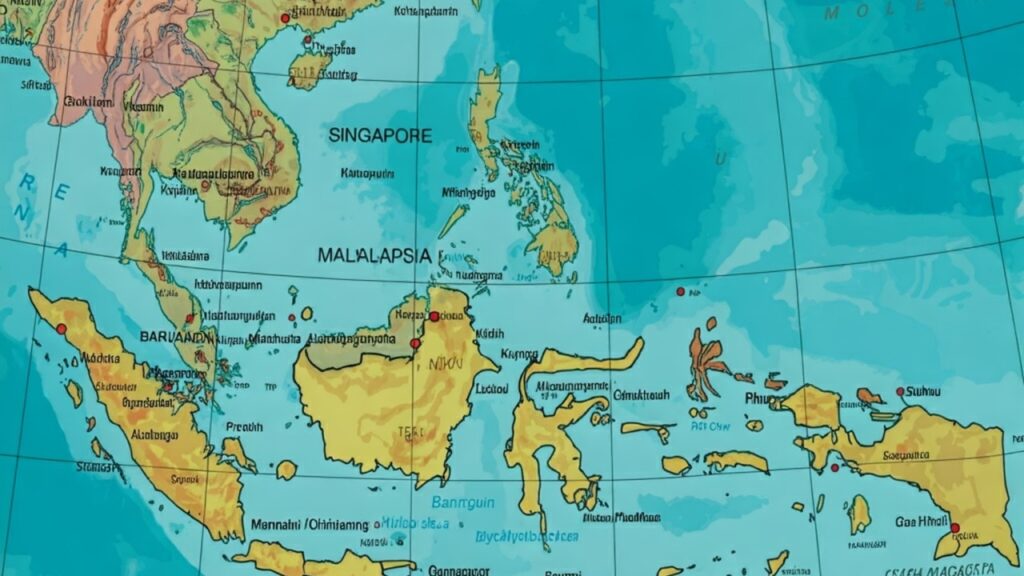
Southeast Asia is rapidly becoming a global AI hub, with Singapore and Malaysia emerging as the key contenders. Both nations possess unique strengths and face distinct challenges as they strive to lead in AI innovation and adoption. This analysis delves into their competitive landscape, examining their respective advantages, weaknesses, and the exciting opportunities that lie ahead, supported by relevant data points.
Singapore: The Established Force in AI Innovation
Singapore has long been recognized as a global leader in technology and innovation. This reputation extends to the field of AI, where the nation boasts a robust ecosystem. In fact, Singapore is projected to invest over S$1 billion (US$743 million) in AI by 2025, demonstrating its commitment to becoming a global AI powerhouse. This investment fuels cutting-edge research and development, particularly in deep tech AI, with a focus on transforming sectors like healthcare, finance, and smart city development. This strategic focus has attracted major global tech companies like Google, Microsoft, and Facebook, who have established significant AI research centers in Singapore.
Beyond funding, Singapore benefits from a mature tech ecosystem. Its well-established infrastructure, supportive regulations, and highly skilled workforce (with over 90% of the population having basic digital literacy) provide fertile ground for AI companies to thrive. World-class universities like the National University of Singapore (NUS) and research institutions like the Agency for Science, Technology and Research (A*STAR) drive groundbreaking research. Singapore also offers strong intellectual property protection, safeguarding valuable AI innovations.
However, Singapore’s success story is not without its challenges. The high cost of living and operating in the city-state can be a significant barrier. Competition for top AI talent is fierce, and while Singapore has a strong talent pool, it faces challenges in attracting and retaining top AI professionals, especially with rising global demand. Additionally, access to diverse and large-scale datasets for AI training can be limited compared to countries with larger populations.
Malaysia: A Rising Star in the AI Arena
Malaysia is rapidly emerging as a formidable competitor in the AI landscape. One of its key advantages is its cost-effectiveness. The Malaysian government has also taken a proactive approach to fostering AI innovation, with initiatives like the National AI Center of Excellence and the Malaysia Artificial Intelligence Roadmap (AI-RMAP), which aims to position Malaysia as a regional leader in AI by 2030. These efforts are attracting significant foreign investment, including major commitments from tech giants like Amazon Web Services (AWS), Google, and Microsoft, who have collectively pledged over US$10 billion in data center investments in Malaysia.
Malaysia’s growing talent pool is another major asset. With a young and digitally savvy population, Malaysia is actively investing in education and training programs to cultivate a skilled AI workforce. Furthermore, Malaysia’s large and growing domestic market of over 32 million people provides ample opportunities for AI-powered products and services. This, coupled with the nation’s multilingual workforce, positions Malaysia to develop AI solutions that cater to diverse markets.
Malaysia’s strengths extend beyond its economic and human capital. Its growing startup scene is attracting increasing support through incubators, accelerators, and funding programs, fostering a culture of innovation and entrepreneurship. Furthermore, massive investments in data centers are providing the critical infrastructure needed for AI development and deployment.
Despite its rapid progress, Malaysia faces challenges on its path to AI leadership. Its tech ecosystem, while growing rapidly, is still maturing compared to Singapore’s well-established infrastructure. Continued investment in talent development is crucial to build a workforce with advanced AI skills. Retaining top AI talent can also be a challenge. Bridging the digital divide and ensuring equitable access to AI technologies across all regions and communities remains a priority.
Opportunities for Growth and Leadership
Both Singapore and Malaysia have significant opportunities to further strengthen their positions in the AI landscape.
Singapore can leverage its strong ethical framework and regulatory expertise to become a global leader in AI governance and standards setting. Focusing on AI solutions for sustainability challenges can create new economic opportunities and enhance Singapore’s global reputation. The nation can also capitalize on its strategic location and established infrastructure to become a regional hub for AI talent. Expanding AI adoption in public services can further improve efficiency and citizen satisfaction. Finally, Singapore’s strong financial sector can leverage AI to drive fintech innovation.
Malaysia has the potential to become a global leader in developing AI solutions for Islamic finance, catering to the growing demand for ethical and Sharia-compliant financial technologies. Applying AI to optimize agricultural practices can significantly benefit Malaysia’s agricultural sector. Leveraging AI to automate manufacturing processes can strengthen Malaysia’s manufacturing industry. Developing AI-powered early warning systems and disaster response solutions can help Malaysia mitigate the impact of natural disasters. Finally, utilizing AI to personalize tourist experiences can boost Malaysia’s tourism industry.
Conclusion: A Shared Future in AI
Both Singapore and Malaysia are poised to become major players in the global AI landscape. Singapore’s strengths lie in its research capabilities, mature ecosystem, robust funding, and ethical framework. Malaysia’s advantages include its cost-effectiveness, growing talent pool, government support, and focus on inclusivity. The healthy competition between these two nations will drive innovation, attract investment, and accelerate the adoption of AI across various sectors, contributing to a thriving AI ecosystem that benefits the entire Southeast Asian region.
